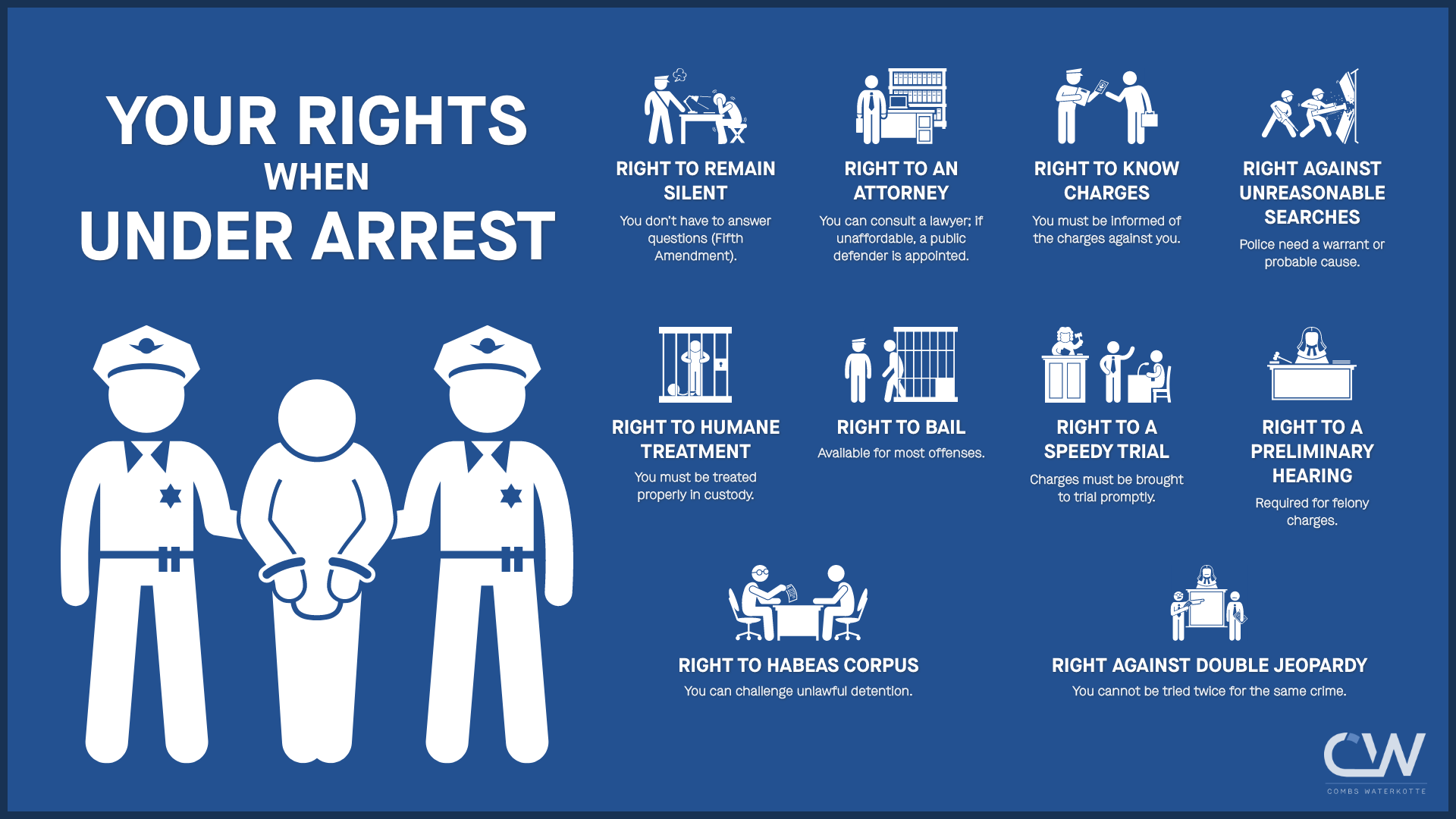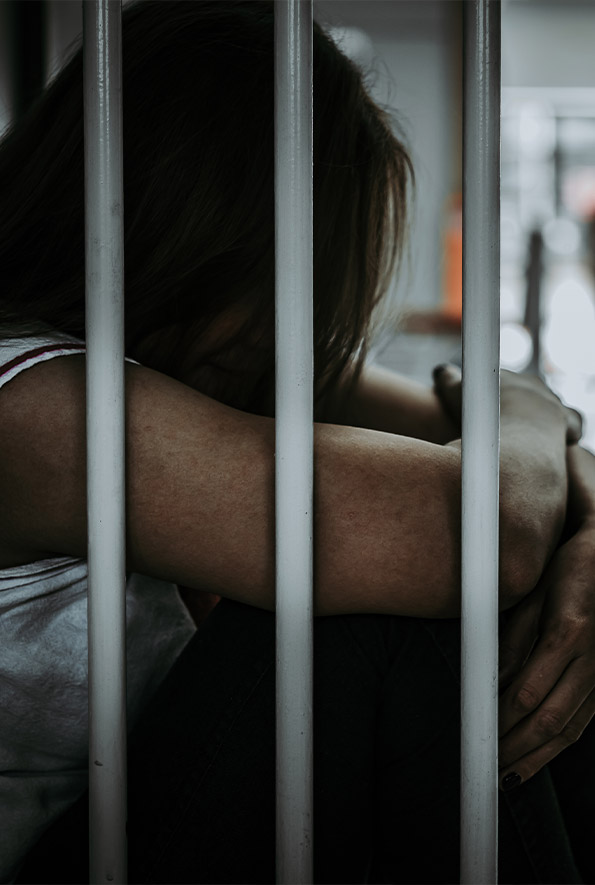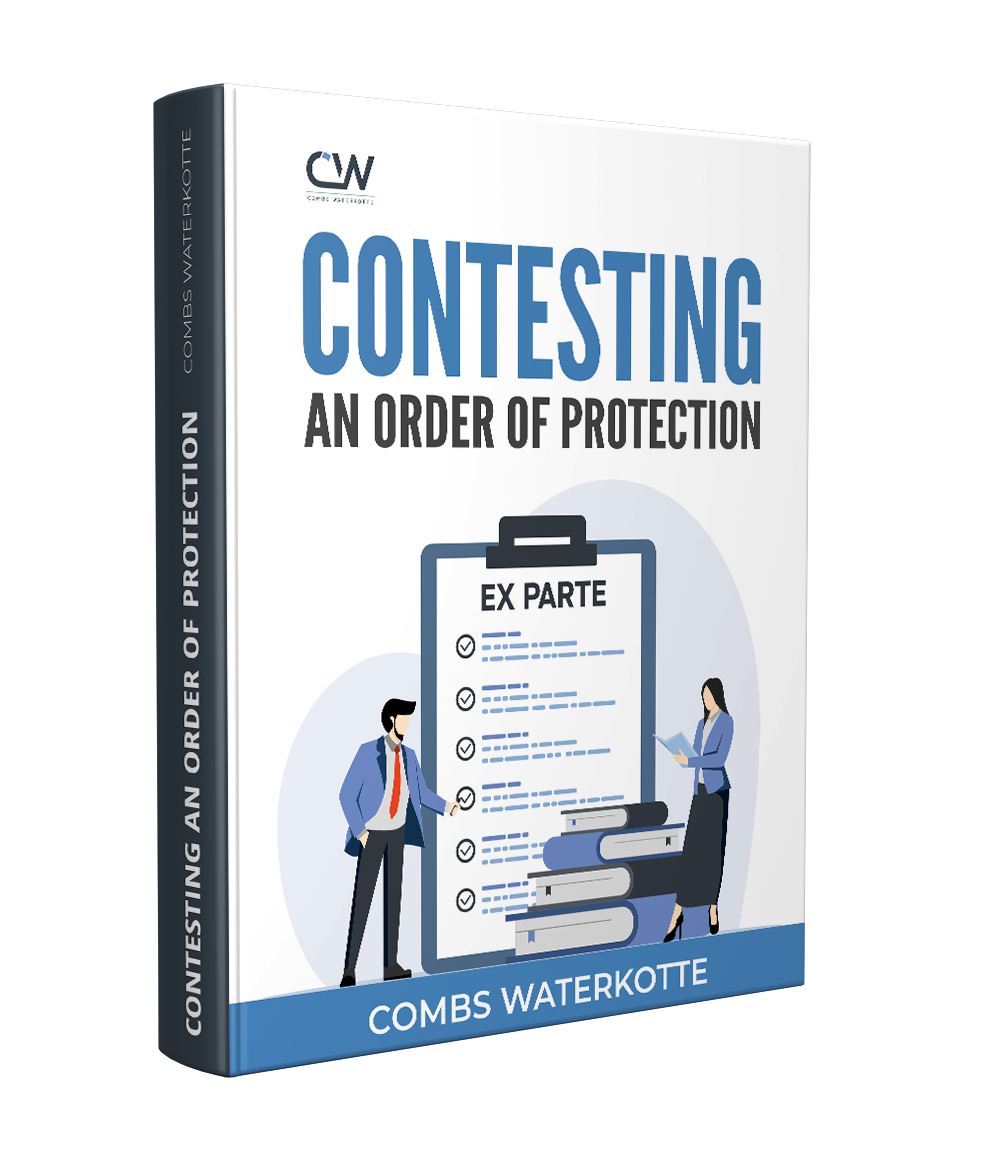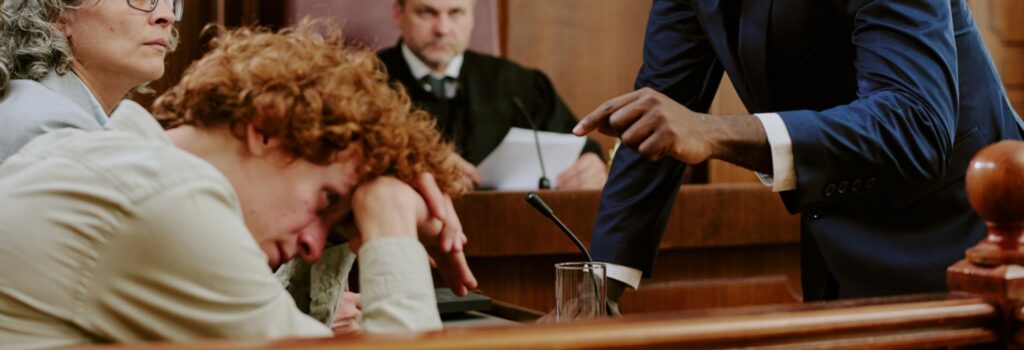
What Counts as Prostitution or Solicitation in Illinois?
In Illinois, prostitution isn’t limited to what people see in movies or headlines. Under the law, it includes any agreement to exchange sexual acts for anything of value — money, drugs, rent, or even gifts. And it’s not just the person performing the act who can be charged. If you solicit, arrange, promote, or even attempt to pay for sex, you could be facing criminal charges.
Your future is on the line. Call Combs Waterkotte's prostitution defense lawyers at (314) 900-HELP for an immediate consultation.
According to the Illinois Criminal Code (720 ILCS 5/11-14), prostitution is defined as:
Knowingly performing, offering, or agreeing to perform any act of sexual penetration or sexual conduct in exchange for anything of value.
Sexual conduct includes physical contact with the sex organs of another for the purpose of arousal or gratification — which means even touching or groping can lead to charges if it’s done in exchange for value.
Solicitation Charges (720 ILCS 5/11-14.1)
Solicitation occurs when someone asks for or offers something of value in exchange for a sex act. That means you don’t have to go through with the act to be charged — just offering or agreeing can be enough.
It’s also illegal to patronize someone engaged in prostitution, promote prostitution, or facilitate it in any way — even online. If a minor or a person with a severe intellectual disability is involved, the offense automatically becomes a felony, even for a first-time defendant.
Examples of Prostitution and Solicitation Under Illinois Law
- Arranging a sexual act through an escort ad
- Offering payment for sex in person, by text, or online
- Responding to a police decoy or sting operation
- Receiving cash, shelter, or goods for sexual favors
- Acting as a third-party to coordinate the exchange
Key takeaway: Even if money never changed hands or no act occurred, the agreement alone can lead to arrest and prosecution. Prostitution and solicitation are aggressively enforced in Southern Illinois — especially during sting operations. You need a defense lawyer who understands the law, the court system, and how to fight these cases from the very first step.
Penalties for Prostitution and Related Charges in Illinois
In Illinois, prostitution and solicitation are criminal offenses that can result in serious consequences — including jail time, steep fines, and a permanent criminal record. Even a first offense can leave a lasting mark, and repeat violations escalate quickly to felony status.
Here’s how the law treats these offenses under the 720 ILCS 5/11-14 series:
- Prostitution (720 ILCS 5/11-14): First offense is a Class A misdemeanor, punishable by up to 1 year in jail and a fine of up to $2,500.
- Subsequent Prostitution Offense: Charged as a Class 4 felony — punishable by 1 to 3 years in prison and fines up to $25,000.
- Soliciting Prostitution (720 ILCS 5/11-14.1): Also a Class A misdemeanor for a first offense; becomes a Class 4 felony when minors or vulnerable individuals are involved.
- Patronizing a Prostitute (720 ILCS 5/11-18): Engaging in sexual activity with someone you know is involved in prostitution. Can be a misdemeanor or felony depending on circumstances.
- Promoting Prostitution (720 ILCS 5/11-14.3): Includes arranging or profiting from prostitution. Usually charged as a Class 4 or Class 3 felony.
- Juvenile Prostitution & Human Trafficking: Involving minors or coercion drastically increases penalties — often resulting in Class 1 or Class X felonies with long prison sentences.
In addition to criminal penalties, convictions can lead to:
- Sex offender registration in certain felony cases
- Immigration consequences for non-citizens
- Loss of employment, housing opportunities, or professional licenses
- Permanent public criminal record
Key takeaway: What might seem like a minor charge can quickly spiral into a felony record with long-term consequences. If you've been charged, now is the time to act — before the system decides your future for you.
How a Southern Illinois Prostitution Lawyer Can Help You Fight the Charges
If you've been accused of prostitution, solicitation, or a related offense in Illinois, your next steps are critical. An experienced criminal defense lawyer can make all the difference — not just in the outcome of your case, but in how your life moves forward.
Early Intervention
We often begin representing clients before formal charges are even filed. This allows us to protect your rights early, guide communications with law enforcement, and sometimes stop the case before it starts.
Reviewing and Challenging the Evidence
We examine all police reports, surveillance footage, text messages, undercover operations, and statements to identify weaknesses in the prosecution's case. If your arrest involved a sting or decoy, we assess whether entrapment or illegal tactics occurred.
Asserting Legal Defenses
Depending on the facts, we may argue:
- Entrapment: You were coerced or manipulated by law enforcement into committing an act you otherwise would not have.
- Lack of Evidence: The state cannot prove beyond a reasonable doubt that you knowingly agreed to or participated in a sexual transaction.
- Misunderstanding: There was no intent to exchange sexual activity for anything of value.
- Constitutional Violations: Illegal searches, improper detainment, or coerced statements may render key evidence inadmissible.
Negotiating Alternatives to Jail
Even when a dismissal isn’t possible, we explore sentencing alternatives such as:
- Court supervision or deferred prosecution programs
- Probation instead of jail time
- Expungement opportunities for eligible misdemeanors
Protecting Your Reputation
We know that even an accusation can damage your personal life, career, and future. That’s why we act quickly and discreetly to contain the fallout and get your case resolved with minimal exposure.
Key takeaway: These cases are not open-and-shut. With the right strategy and aggressive legal representation, you may be able to avoid jail, protect your record, and move on with your life.
Legal Definitions and Related Offenses in Illinois
Illinois law clearly defines prostitution and related offenses under 720 ILCS 5/11. Understanding how the law classifies these acts is key to building a strong defense and anticipating the possible penalties or enhancements you may face.
Prostitution (720 ILCS 5/11-14)
Prostitution is defined as knowingly engaging in, offering, or agreeing to engage in a sexual act for anything of value. This includes sexual conduct or sexual penetration — not just intercourse, but also acts like touching or fondling for sexual gratification.
Solicitation of a Sexual Act (720 ILCS 5/11-14.1)
Solicitation involves offering or agreeing to pay another person for sexual acts. This offense is charged even if the act doesn’t occur, and it applies to both the buyer and the seller.
Patronizing a Prostitute (720 ILCS 5/11-18)
This charge applies when someone knowingly engages in a sexual act with a person they know to be a prostitute or with someone compelled to engage in prostitution. The offense can escalate to a felony depending on age or coercion factors.
Promoting Prostitution (720 ILCS 5/11-14.3)
This includes knowingly receiving money from prostitution, arranging or facilitating prostitution, or controlling premises where prostitution takes place. It is often used against third parties such as drivers, managers, or organizers.
Promoting Juvenile Prostitution (720 ILCS 5/11-14.4)
This charge applies when an individual knowingly promotes or profits from prostitution involving a person under 18. It is a serious felony with mandatory prison time and enhanced penalties.
Soliciting a Minor or a Person with a Disability
Solicitation becomes a felony when it involves a minor (under 18) or someone with a severe or profound intellectual disability. The law treats these cases far more harshly, often with mandatory prison terms and sex offender registration.
Key takeaway: Many prostitution-related arrests involve more than one charge — and the distinctions matter. A skilled defense lawyer will understand how these statutes interact and how to challenge overreach, enhancements, or improper stacking of charges.

How a Prostitution Lawyer Can Help You Fight the Charges
If you’ve been arrested for prostitution or solicitation in Illinois, you may feel overwhelmed — but you are not without options. An experienced prostitution defense attorney can step in immediately to protect your rights, challenge the prosecution's case, and pursue the best possible outcome for your future.
Early Intervention and Case Review
From the start, your lawyer can engage with law enforcement, evaluate the strength of the state’s case, and work to keep charges from being filed or escalated. In some cases, early legal involvement can make the difference between a charge and a warning — or between jail and dismissal.
Identifying and Asserting Defenses
Many prostitution cases involve weak or circumstantial evidence, questionable police conduct, or entrapment. Your attorney will examine every element of the arrest — from surveillance tactics and undercover operations to the wording of police reports — to identify viable defenses.
Challenging Unlawful or Coercive Police Practices
Was the arrest part of a sting operation? Were your rights violated during questioning or booking? A skilled lawyer will investigate whether law enforcement crossed legal lines and file motions to suppress any tainted evidence.
Plea Negotiations and Sentencing Alternatives
When appropriate, your lawyer can work to negotiate reduced charges, alternative sentencing options like probation, or diversion programs that avoid jail time and public records. In first-offense cases, these alternatives are often realistic — but only if advocated properly.
Protecting Your Reputation and Record
A prostitution charge can impact your job, housing, and family life. Your defense team can pursue sealing or expungement (when eligible) and advise you on how to minimize public exposure. They can also guide you in dealing with media coverage or employer inquiries.
Key takeaway: A strong defense doesn’t start in the courtroom — it starts with an experienced lawyer who knows how Illinois prostitution cases are charged, prosecuted, and resolved. Don’t face the system alone.
What to Expect During the Legal Process
If you're facing prostitution or solicitation charges in Illinois, understanding the legal process can help you make informed decisions and avoid missteps. Here's what typically happens after an arrest — and how a skilled attorney can help at every stage.
- Investigation and Arrest: Law enforcement may conduct stings, undercover operations, or surveillance before making an arrest. You may be approached by undercover officers or cited during raids of suspected locations.
- Booking and Charges: After arrest, you’ll be fingerprinted, photographed, and formally charged. This is when your defense should begin — before you make any statements to police or prosecutors.
- First Court Appearance: You'll be arraigned before a judge and informed of the charges. Your lawyer can argue for a reasonable bond or for release on recognizance.
- Pretrial Proceedings: This phase involves collecting evidence (“discovery”), filing motions (e.g., to dismiss charges or suppress evidence), and exploring plea bargain options. Most prostitution cases are resolved here — not in trial.
- Plea Negotiations: In many cases, your attorney can negotiate a favorable outcome, such as a reduced charge, diversion program, or dismissal with conditions. This avoids jail and protects your record.
- Trial (If Necessary): If a deal can’t be reached or if you choose to fight the charge, your case may proceed to trial. Your lawyer will present evidence, cross-examine witnesses, and argue for acquittal.
Throughout the process, your defense lawyer will guide you on what to expect, how to respond, and when to speak. Communication and strategy are key — and experience matters.
Key takeaway: The legal system can be intimidating, but you don’t have to go through it alone. With a strong defense team by your side, you’ll be better prepared — and better protected — at every step.
Frequently Asked Questions About Prostitution Charges in Illinois
What is the penalty for prostitution in Illinois?
For a first-time offense, prostitution is typically charged as a Class A misdemeanor, punishable by up to 1 year in jail and a fine of up to $2,500. Subsequent offenses may be charged as Class 4 felonies, which carry 1 to 3 years in prison and up to $25,000 in fines.
What is soliciting for prostitution?
Solicitation refers to offering or agreeing to pay someone in exchange for a sexual act. Under Illinois law, it’s illegal to solicit prostitution, and a conviction can result in misdemeanor or felony charges depending on the circumstances — such as if a minor is involved or if the defendant has prior offenses.
What are the prostitution laws in Illinois?
Prostitution is prohibited under 720 ILCS 5/11-14 and related statutes. The law criminalizes both offering and accepting anything of value in exchange for sexual acts, as well as associated crimes like solicitation, pimping, promoting prostitution, and patronizing a prostitute. Penalties depend on the offense, prior history, and whether aggravating factors are present.
Can I go to jail for a first offense?
Yes. A first conviction is a Class A misdemeanor, which can result in up to 12 months in jail. However, with the help of a defense lawyer, many first-time offenders are able to negotiate probation, community service, or even dismissal through diversion programs.
Are there alternatives to jail time?
Absolutely. In many cases, especially for first-time offenders, your lawyer may be able to negotiate for supervision, deferred prosecution, or entry into a diversion program. These options can help you avoid incarceration and keep your record clean.
Key takeaway: If you're facing prostitution-related charges, it’s normal to have questions. An experienced attorney can help you get answers — and take the right steps to protect your future.






























